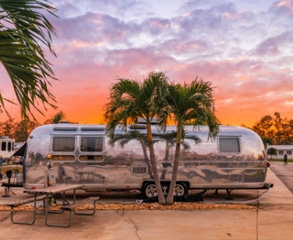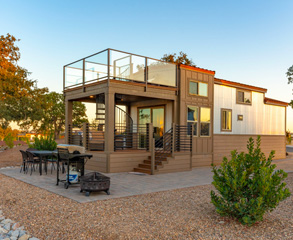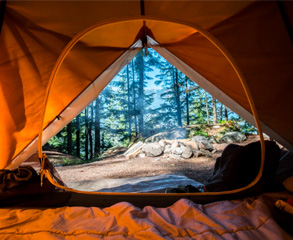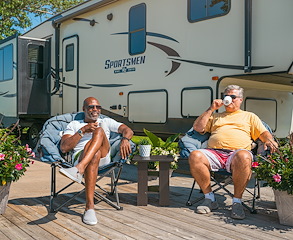Learn How to Stock an RV: Essential Tips for Your Camping Trip
You've got the keys to your RV and are ready to hit the open road on your first RV camping trip! Before you load up all your must-have necessities and luxury items to keep the family entertained, it's crucial to create a packing list. Properly preparing for your camping trip can save you both time and money. If you're unsure about how to pack an RV or what to bring along, this guide will simplify your planning process.
Check the Manual for Your RV
Before deciding what to pack in your recreational vehicle, consult your RV owner manual. This manual provides the Gross Vehicle Weight Ratio (GVWR), which is the maximum safe weight of your RV. The GVWR includes the weight of the vehicle itself, plus water, fuel, personal belongings, and food.
Tip: It's critical not to overload your RV, as excess weight affects handling and performance, potentially leading to dangerous situations on the road. Keep the GVWR in mind when creating your RV packing list.
Planning for Your RV Road Trip
While it may be tempting to pack everything you want, you need to prioritize essential items. Focus on critical gear, such as:
- Important electronic devices
- Toiletries
- First aid items
Remember, traveling is about exploration. You'll find plenty of activities to keep your family engaged along the way.
Clothing Essentials for Your RV Camping Trip
It's easy to overpack clothing for an RV vacation. Aim for 5 to 6 days worth of casual, climate-appropriate clothes. A good strategy is to create two stacks of clothing: must-have items and candidates. Gradually eliminate from the candidates until you have no more than a week's worth, including swimwear if necessary.
Prepare a Menu for Your Camping Trip
Cooking in an RV is convenient, but space is limited for cold storage and dry goods. Food can add significant weight to your RV, especially canned and boxed items. To manage this:
- Plan a simple menu for your trip.
- For shorter trips, buy only what you need along with a few snacks.
- For longer trips, focus your shopping on favorite meals but leave room to restock along the way.
Opt for one-pot meals or crockpot recipes to save space and simplify meal prep.
Pack Essential Tools for Your RV Trip
Unlike tent camping, RV camping requires more mechanical preparedness. Pack a toolbox for minor repairs, including:
- Pliers
- Screwdrivers
- A level
- Hammer
- Wrenches of various sizes
Managing Your Water-to-Weight Ratio
Regardless of your trip's length, avoid filling your freshwater tank completely unless necessary. Keeping it around one-third capacity is typically enough to get you to your next destination comfortably.
Tip: A gallon of water weighs approximately 8.3 lbs., and larger RVs can hold up to 80 gallons or more. Be mindful of how this weight can affect your fuel economy.
Tips for Packing Your RV
Here are some final packing tips:
- Keep heavy items low in your RV to lower the center of gravity and prevent shifting during transit.
- Use tension rods designed for cabinets and shelving to secure items like canned goods and boxes.
- Always open cabinets and doors carefully while in motion, as items may shift and fall.
By following these guidelines, you can efficiently stock your RV and ensure a smooth camping experience. Happy travels!
Related Posts









